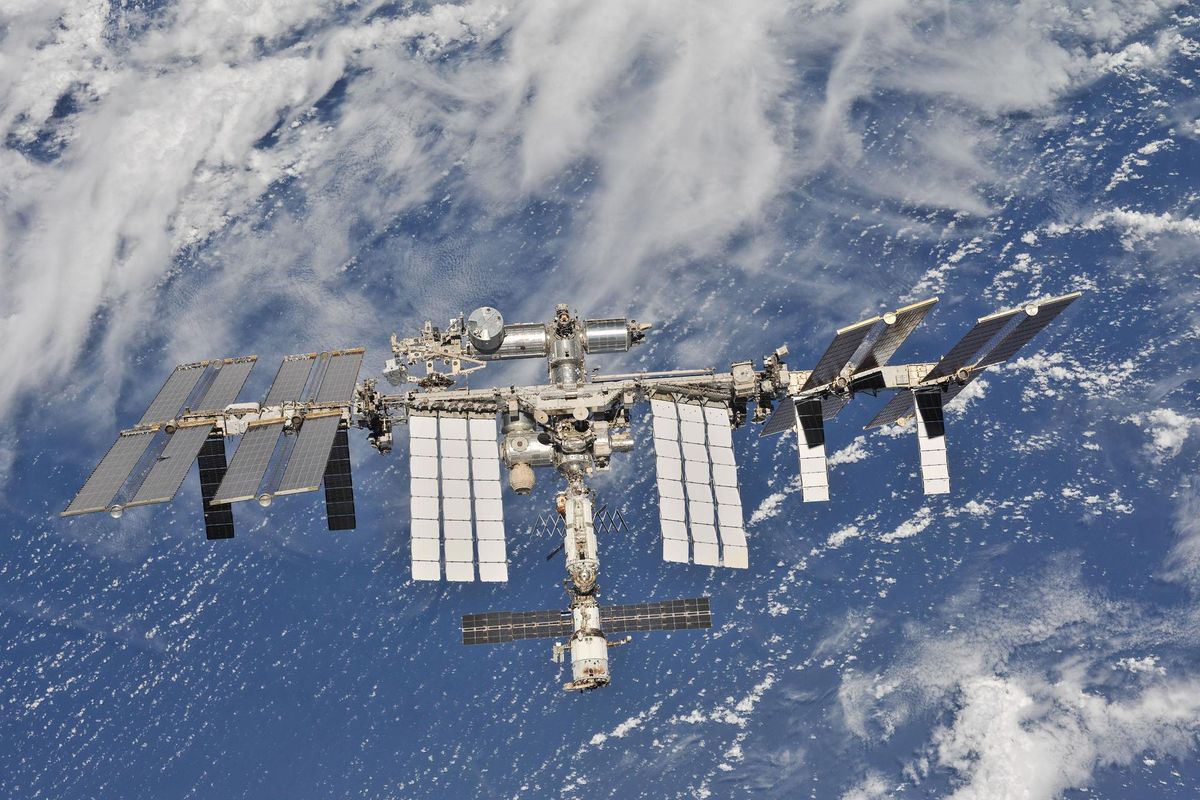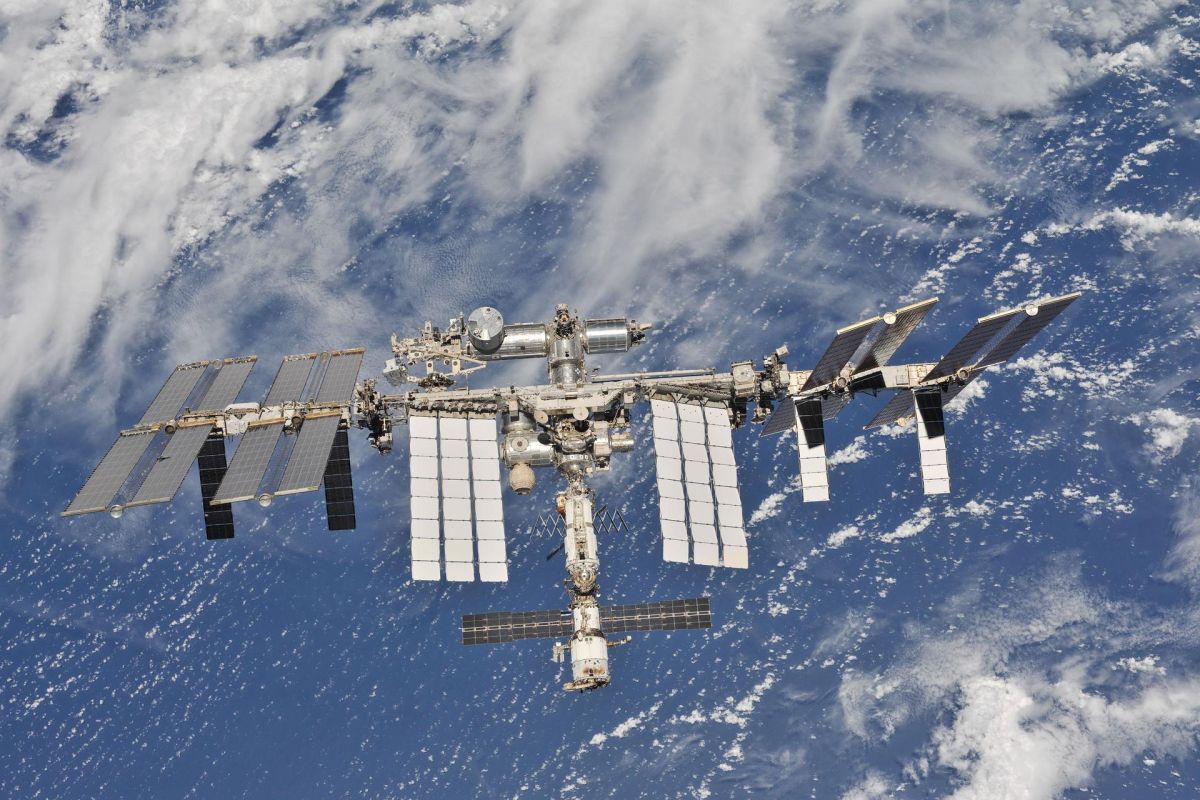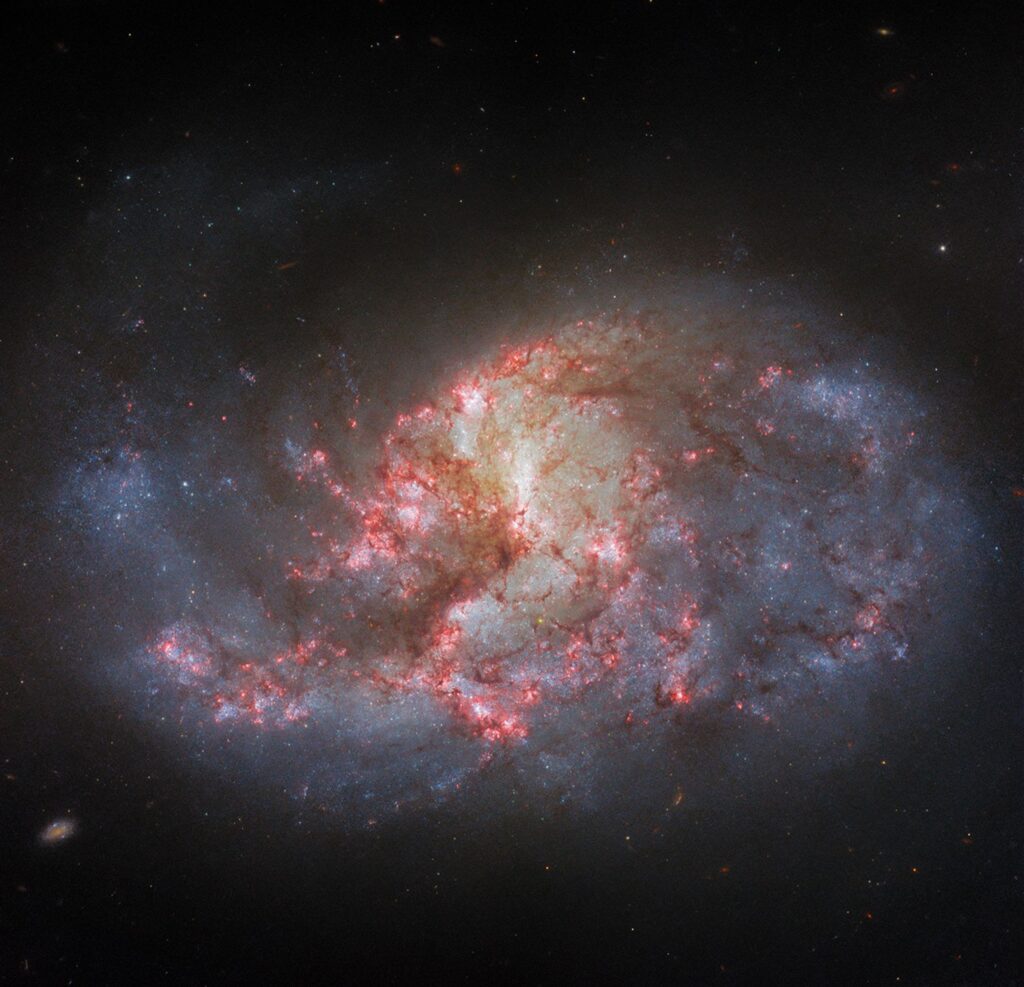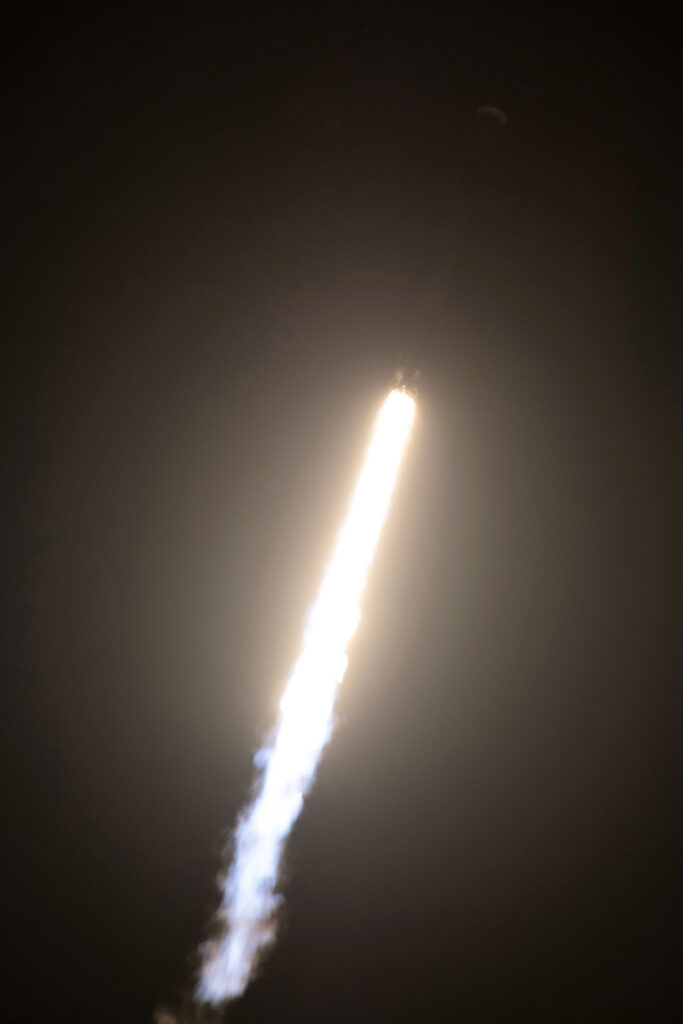
Russia’s departure from the International Space Station (ISS) program isn’t exactly imminent, it would seem.
On Tuesday (July 26), Yuri Borisov, the new head of Russia’s space agency Roscosmos, announced that the nation planned to leave the ISS consortium “after 2024.”
That statement contains quite a bit of wiggle room, and it appears that Russia is going to take advantage of it. The nation intends to remain an ISS partner at least until its own space station is up and running, a milestone that’s not expected until 2028 at the earliest, Reuters reported (opens in new tab) on Wednesday (July 27).
The International Space Station: Facts, history and tracking
Reuters cited NASA human spaceflight chief Kathy Lueders, who said she spoke with Russian space officials on Tuesday after Borisov’s announcement.
“We’re not getting any indication at any working level that anything’s changed,” Lueders told Reuters. She described the human spaceflight relationship between NASA and Roscosmos as “business as usual.”
Many of Russia’s other space partnerships, however, have fractured or dissolved recently, a result of the nation’s ongoing invasion of Ukraine. Russian rocket engines are no longer sold to American companies, for example, and Russian-built Soyuz rockets have stopped flying out of Europe’s Spaceport in French Guiana.
And Borisov didn’t exactly break new ground with this week’s announcement. His predecessor as Roscosmos head, Dmitry Rogozin, threatened to leave the ISS consortium multiple times, tying the nation’s continued participation to the lifting of sanctions imposed on Russia as a result of the Ukraine invasion. (Those sanctions have not been lifted.)
Related stories:
The orbital outpost that Russia plans to build is called the Russian Orbital Service Station, or ROSS. On Tuesday, Roscosmos published an interview about ROSS (opens in new tab) with Vladimir Solovyov, the flight director of the Russian segment of the ISS and the general designer of RSC Energia, the prime contractor for Russia’s human spaceflight program.
Solovyov thinks a hasty withdrawal from the International Space Station would be a bad move for Russia.
“We, of course, need to continue operating the ISS until we create a more or less tangible backlog for ROSS,” Solovyov said in the Roscosmos interview, as Reuters noted. (The Roscosmos piece is in Russian; translation provided by Google.) “We must take into account that if we stop manned flights for several years, then it will be very difficult to restore what has been achieved.”
Mike Wall is the author of “Out There (opens in new tab)” (Grand Central Publishing, 2018; illustrated by Karl Tate), a book about the search for alien life. Follow him on Twitter @michaeldwall (opens in new tab). Follow us on Twitter @Spacedotcom (opens in new tab) or on Facebook (opens in new tab).



